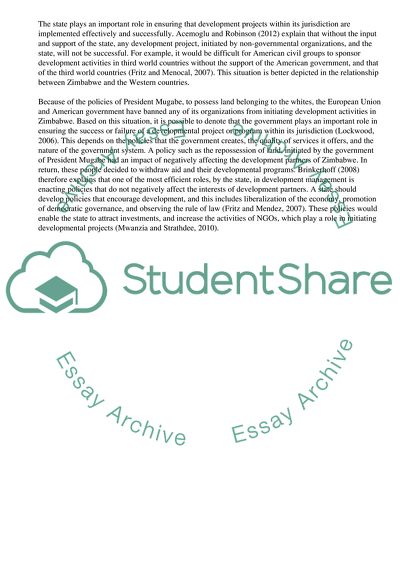Cite this document
(How Important Is the State for Effective Development Management Coursework Example | Topics and Well Written Essays - 2000 words - 1, n.d.)
How Important Is the State for Effective Development Management Coursework Example | Topics and Well Written Essays - 2000 words - 1. https://studentshare.org/management/1844818-development-management1how-important-is-the-state-for-effective-development-management-use-examples-to-illustrate-your-arguments
How Important Is the State for Effective Development Management Coursework Example | Topics and Well Written Essays - 2000 words - 1. https://studentshare.org/management/1844818-development-management1how-important-is-the-state-for-effective-development-management-use-examples-to-illustrate-your-arguments
(How Important Is the State for Effective Development Management Coursework Example | Topics and Well Written Essays - 2000 Words - 1)
How Important Is the State for Effective Development Management Coursework Example | Topics and Well Written Essays - 2000 Words - 1. https://studentshare.org/management/1844818-development-management1how-important-is-the-state-for-effective-development-management-use-examples-to-illustrate-your-arguments.
How Important Is the State for Effective Development Management Coursework Example | Topics and Well Written Essays - 2000 Words - 1. https://studentshare.org/management/1844818-development-management1how-important-is-the-state-for-effective-development-management-use-examples-to-illustrate-your-arguments.
“How Important Is the State for Effective Development Management Coursework Example | Topics and Well Written Essays - 2000 Words - 1”. https://studentshare.org/management/1844818-development-management1how-important-is-the-state-for-effective-development-management-use-examples-to-illustrate-your-arguments.


